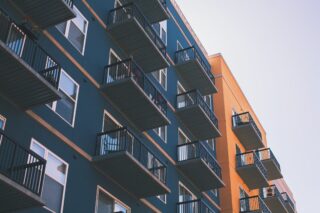HOME | ABOUT US | MEDIA KIT | CONTACT US | INQUIRE
HOME | ABOUT US | MEDIA KIT | CONTACT US | INQUIRE
Future incentivized apartment housing projects in Kansas City, Mo. face a new ordinance that will take effect in April.

During a Thursday Kansas City Council meeting, members unanimously approved an ordinance that requires a minimum of 20 percent of units be set aside for affordable housing in apartment development projects using city incentives.
Incentives include tax abatements, redirections or bond issuances for multifamily housing projects, which the ordinance defines as having 12 or more residential units across all sites and phases of the development project.
“Years of work. Hundreds of advocates. Work ahead, but progress today. Looking forward to all interested parties working together to create more affordable housing opportunities for all Kansas Citians,” Kansas City Mayor Quinton Lucas said in a tweet on Thursday and thanking the Urban Neighborhood Initiative.
Following up on Lucas’ tweet, Third District Councilwoman Melissa Robinson expressed thanks to PEN housing advocates in a tweet and saying, “There’s a long way to travel to address our housing crisis but today, the Council unanimously passed a set aside for incentivized housing projects.”
Lucas and Robinson had both originally introduced a series of additions to the ordinance in December, council members signing off on these additions to the measure during Thursday’s meeting.
The ordinance notes that of the minimum requirement of 20 percent to be set aside, half of that amount must be reserved for tenants with incomes up to 70 percent of the city’s median family income (affordable housing) and the other half must be reserved for tenants earning up to 30 percent median family income (extremely affordable housing).